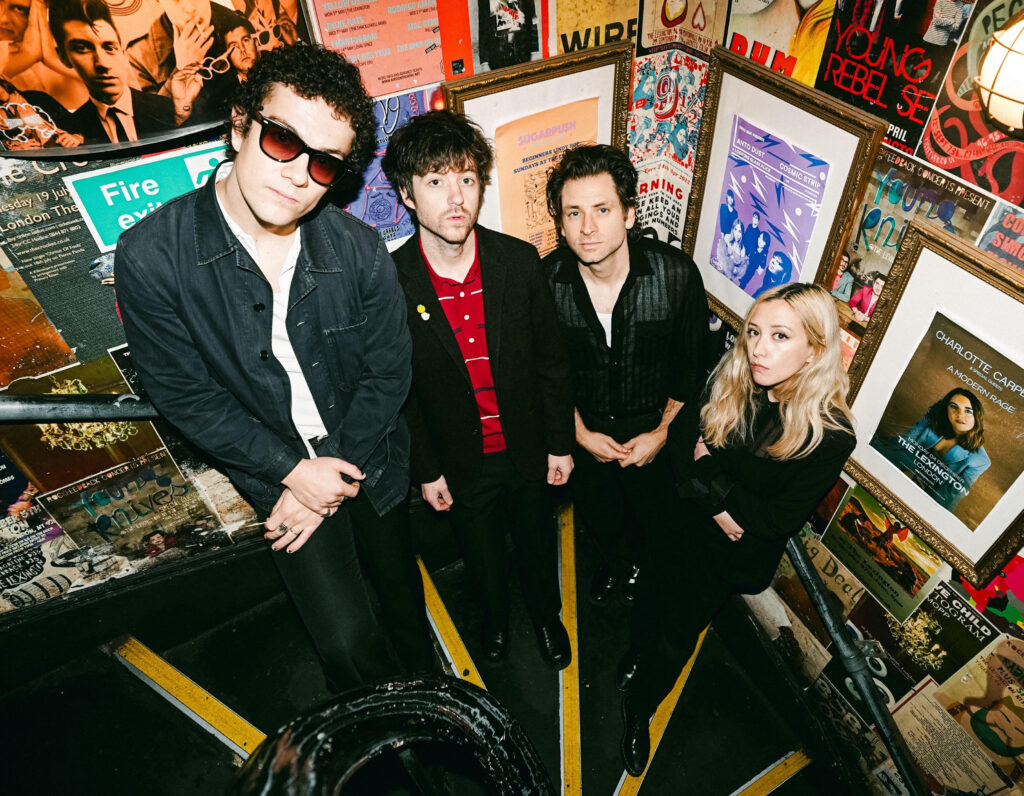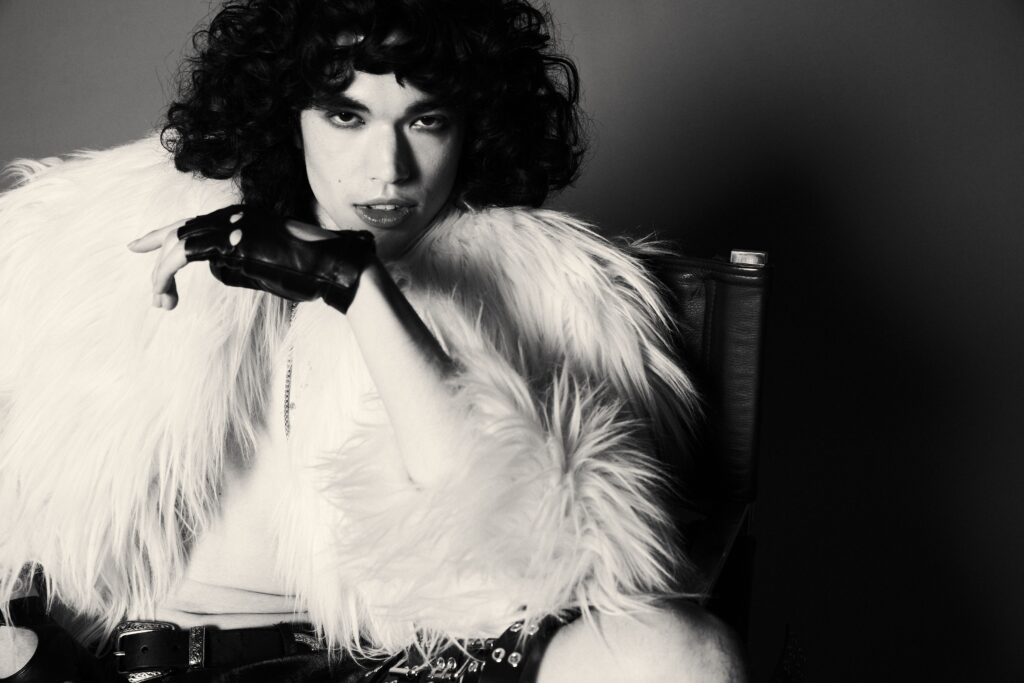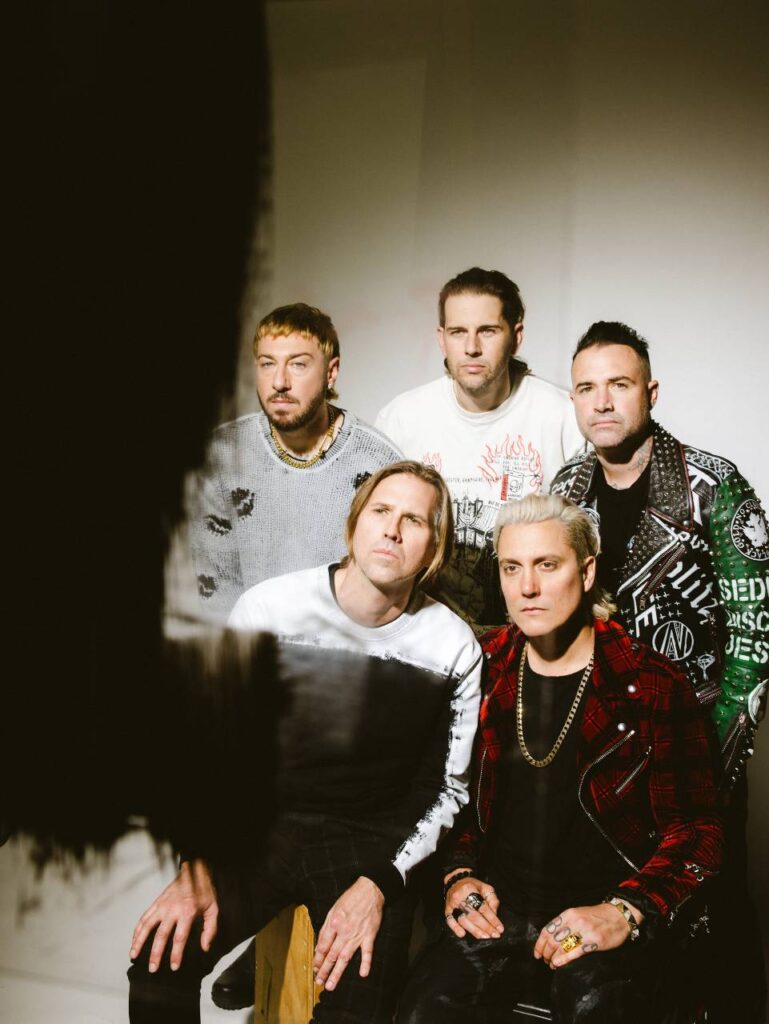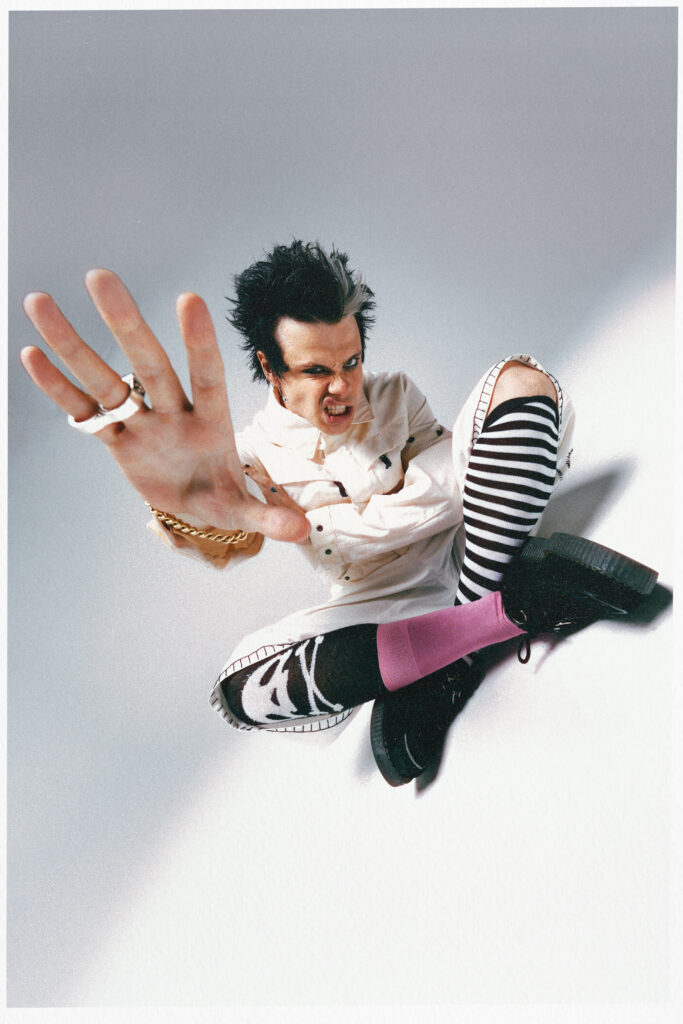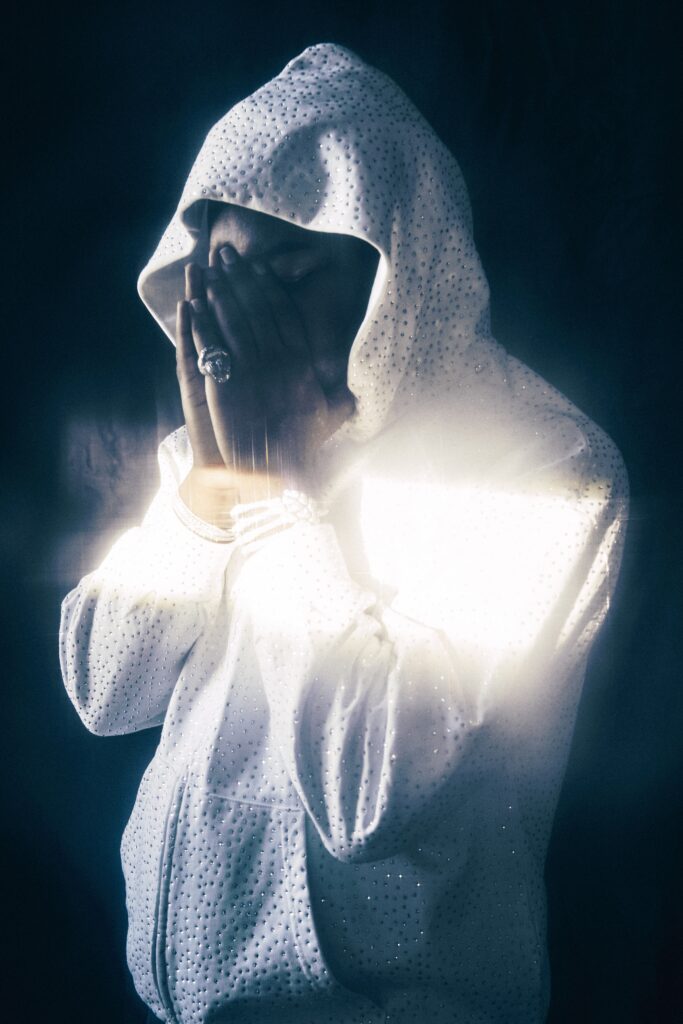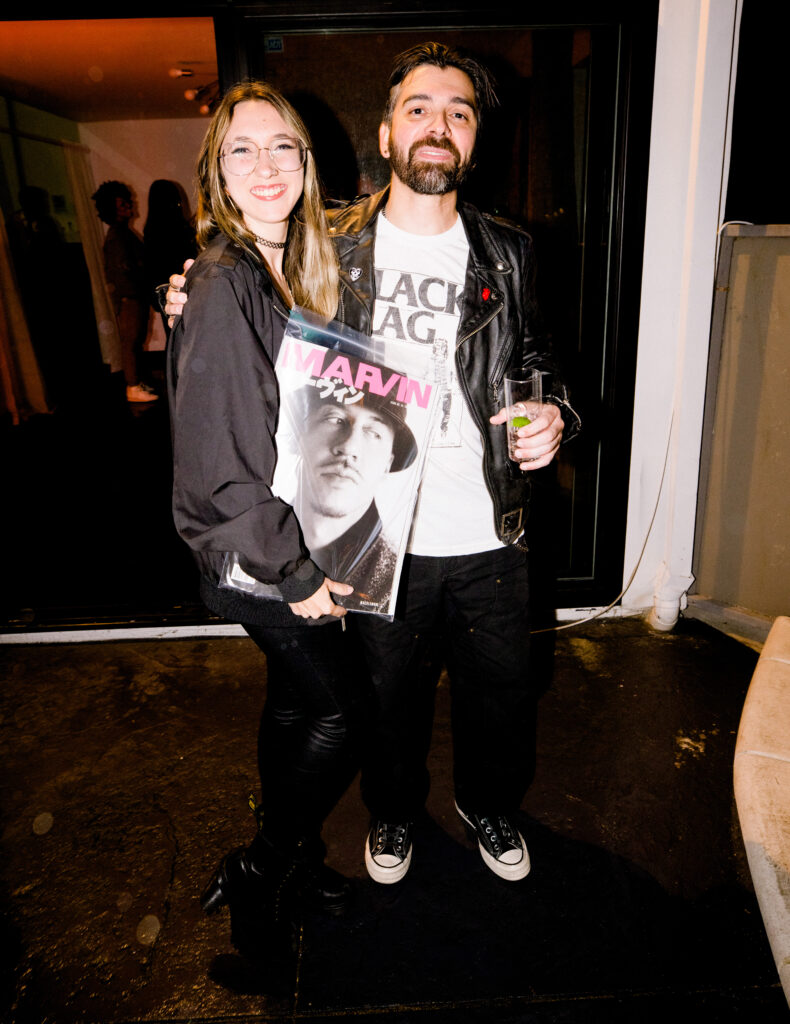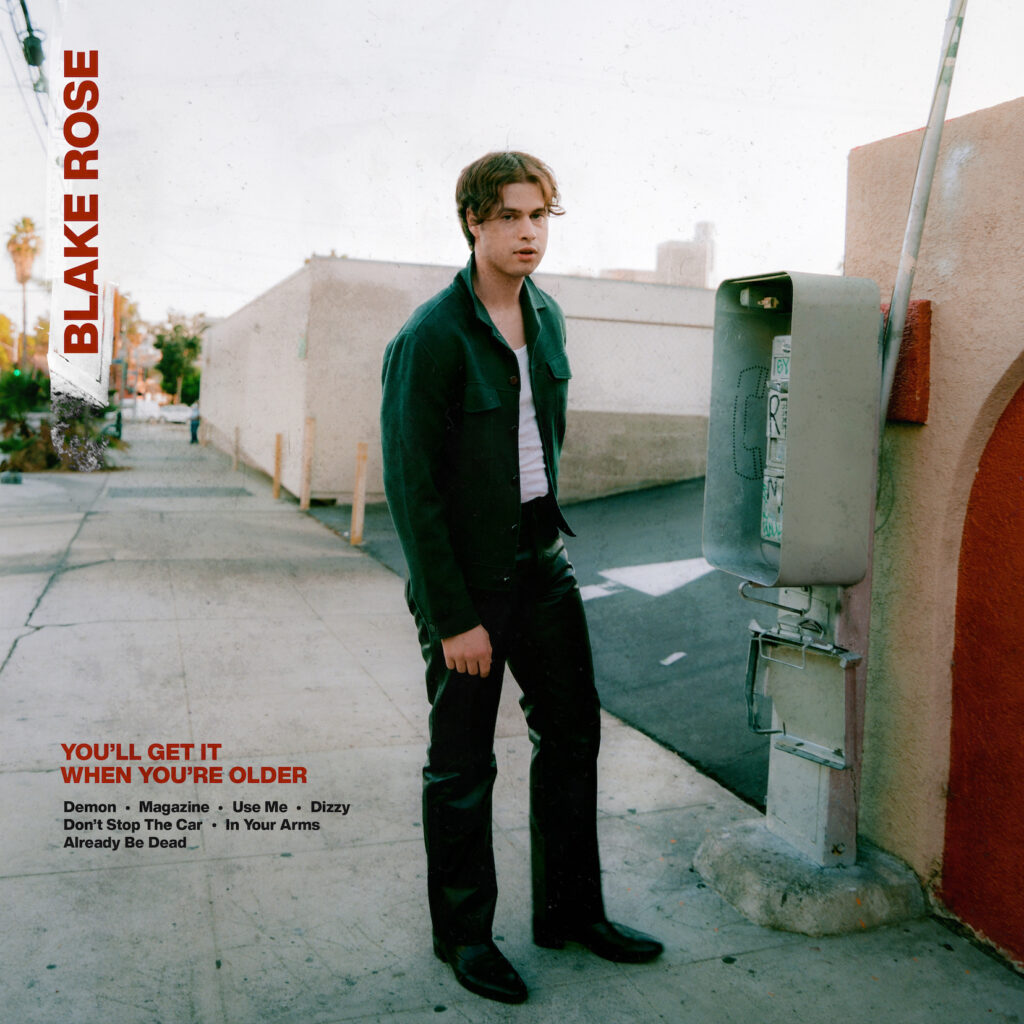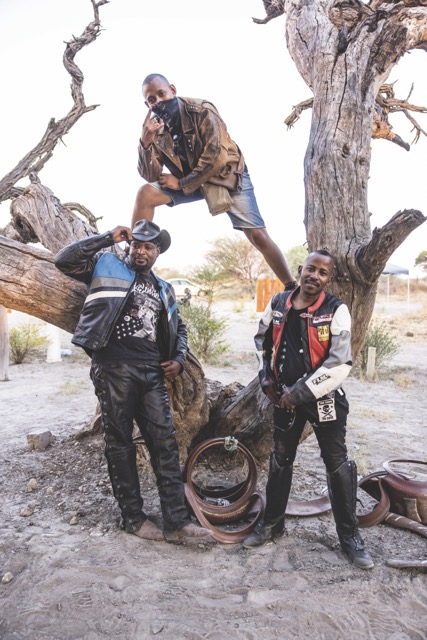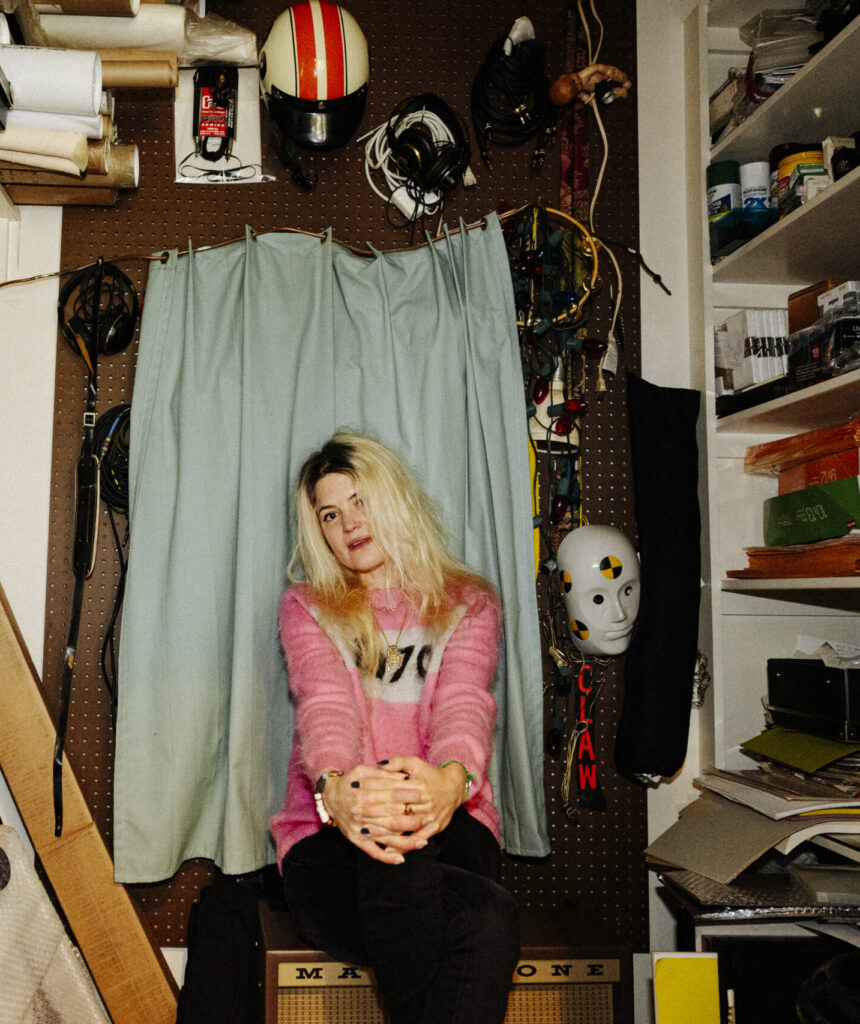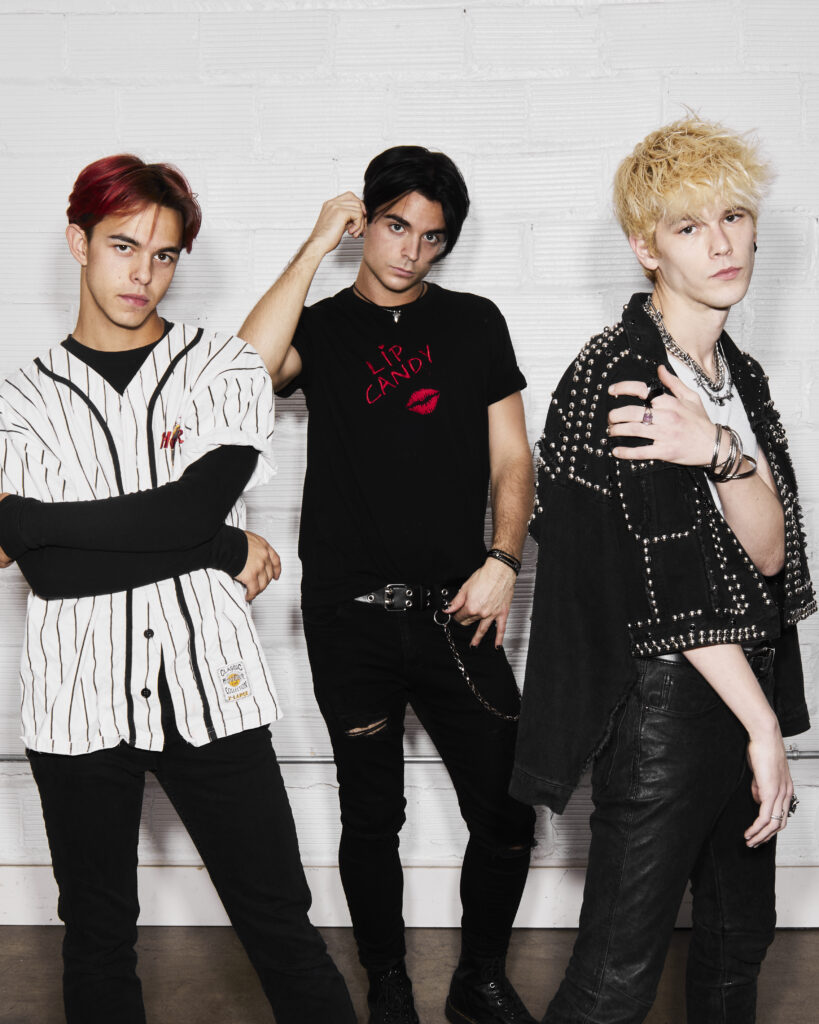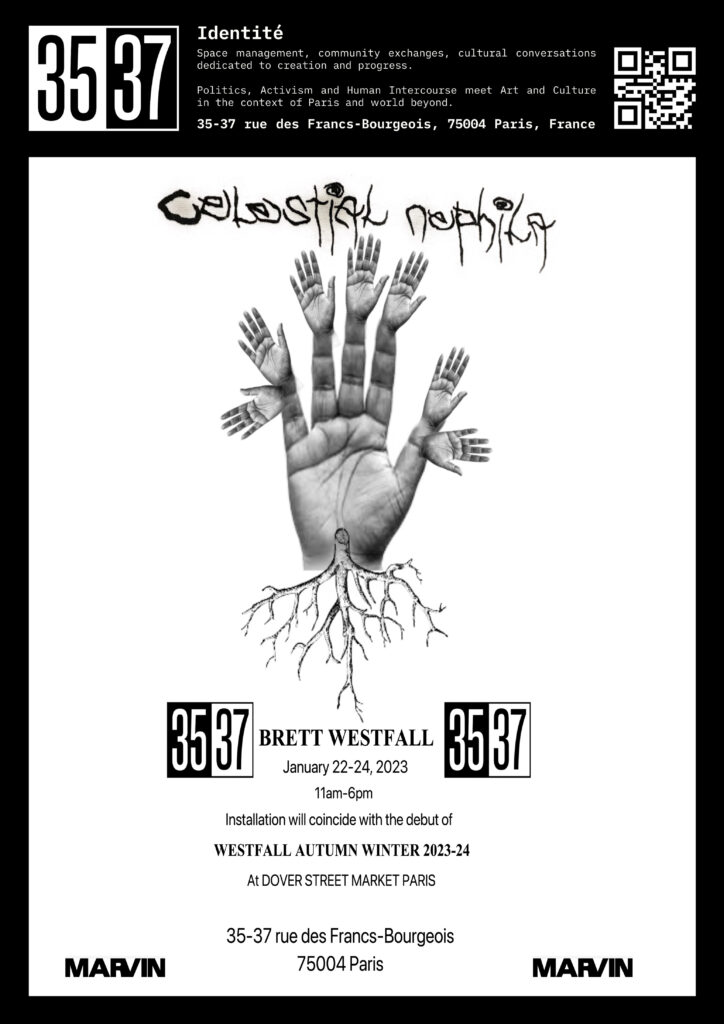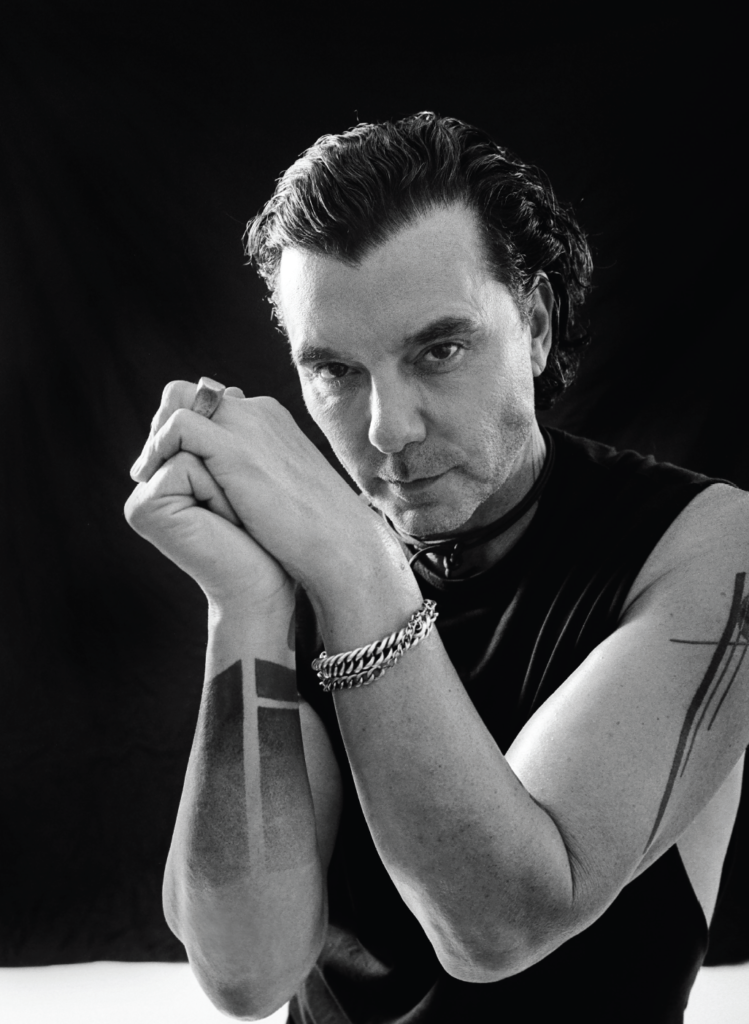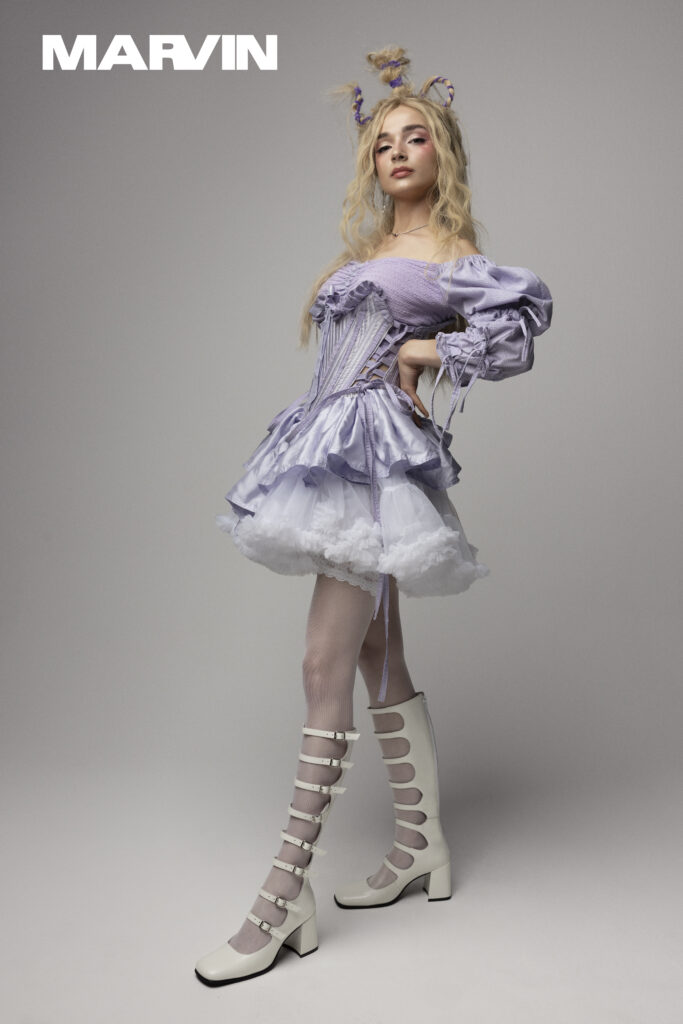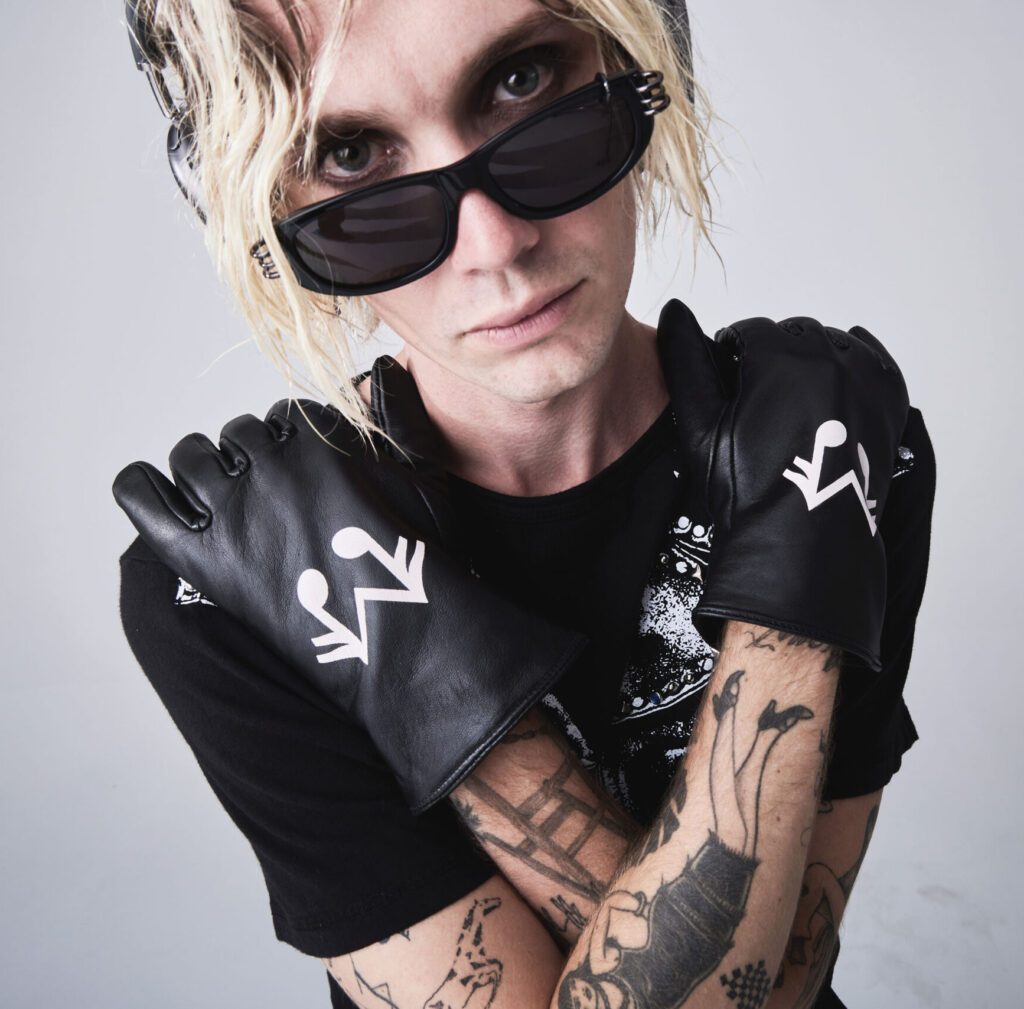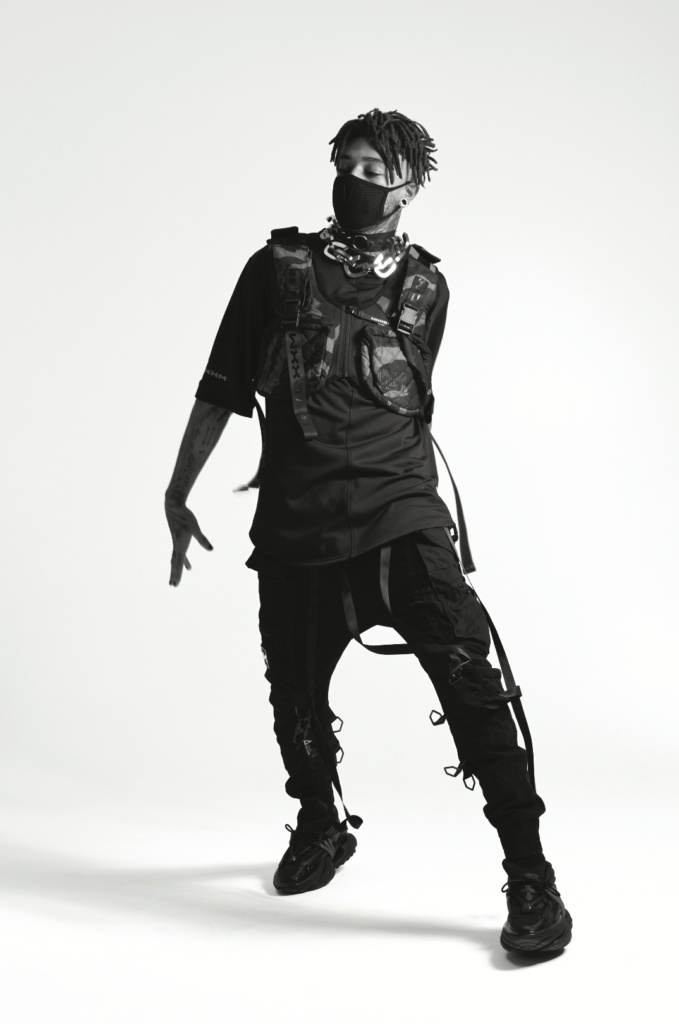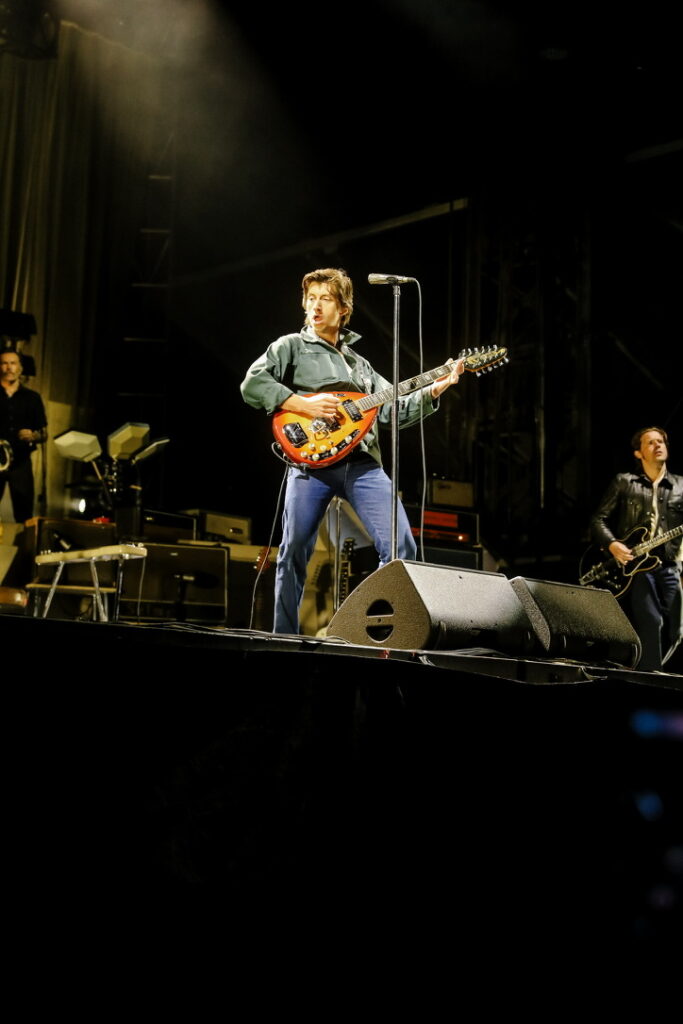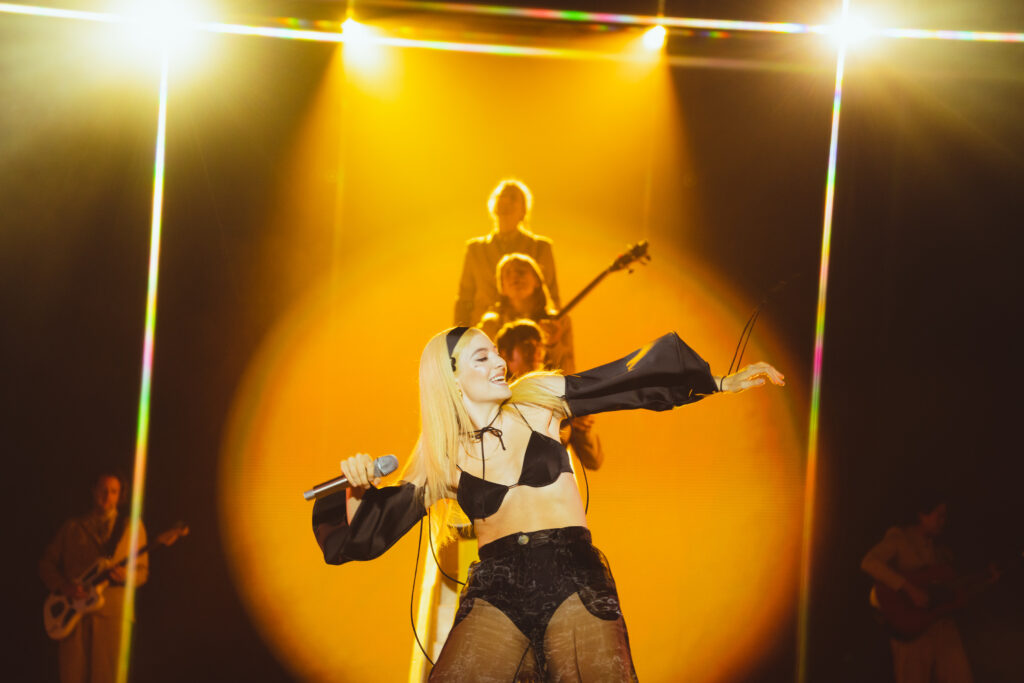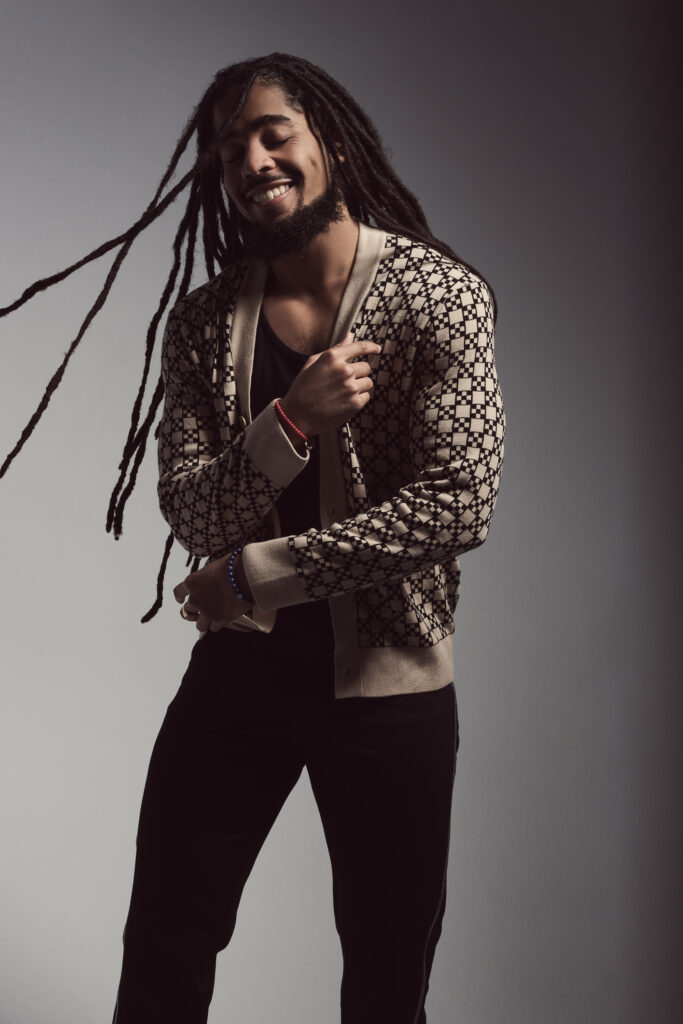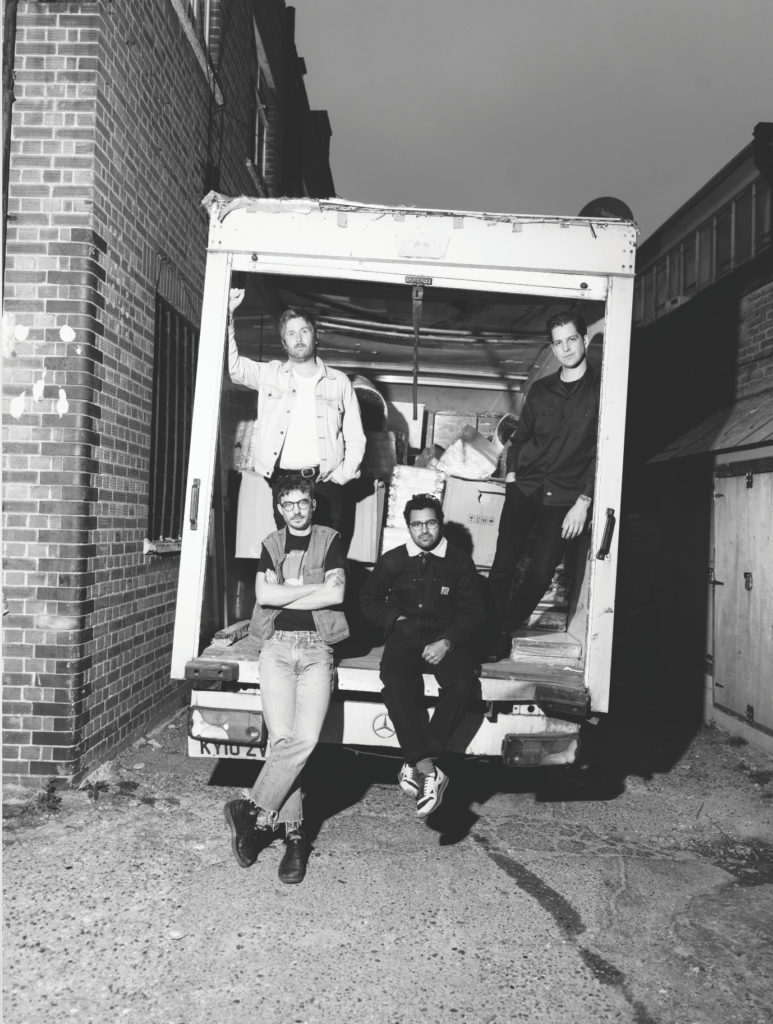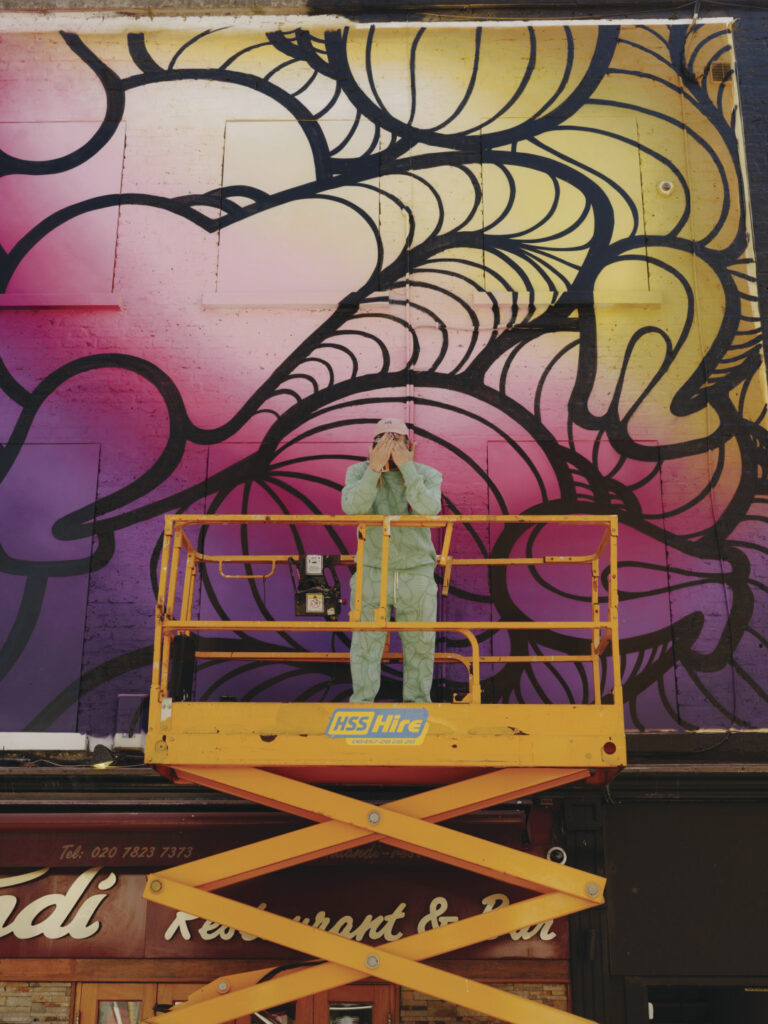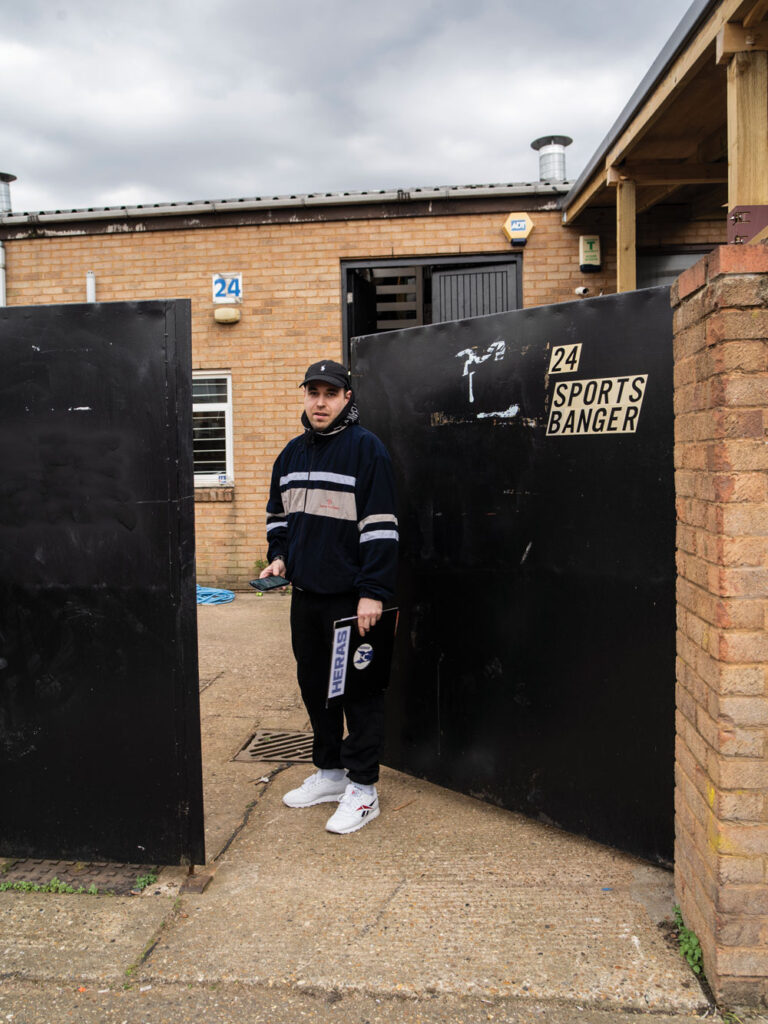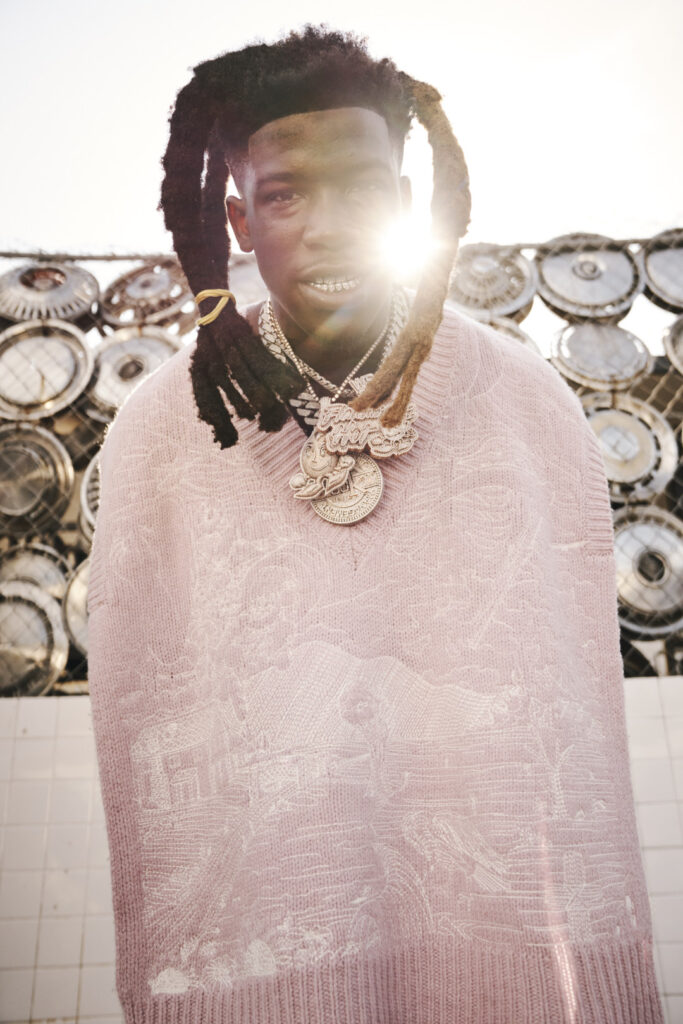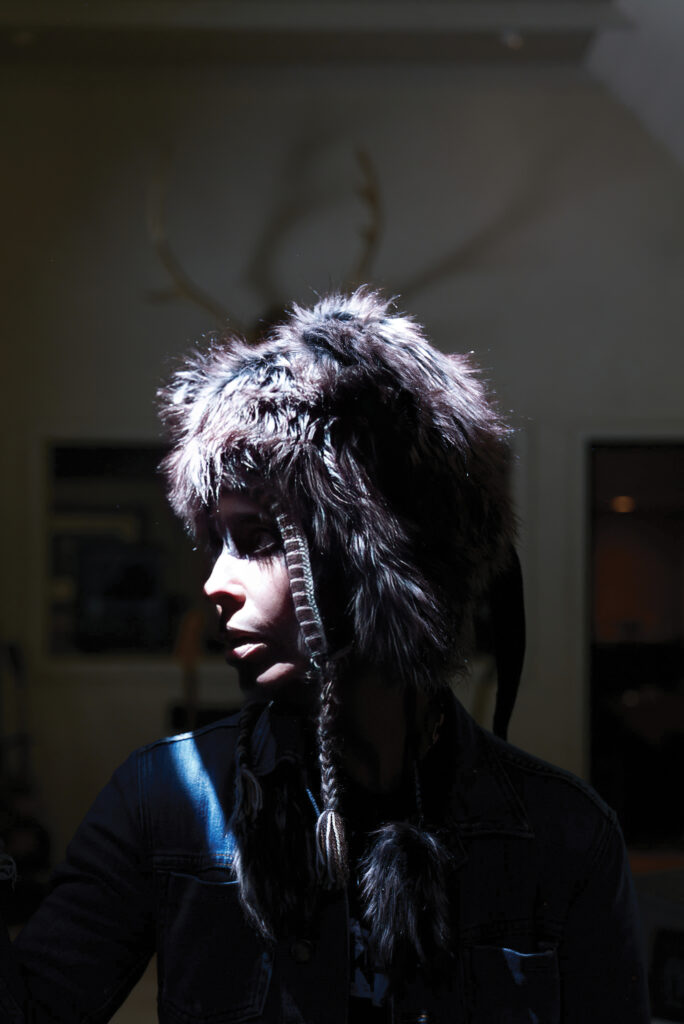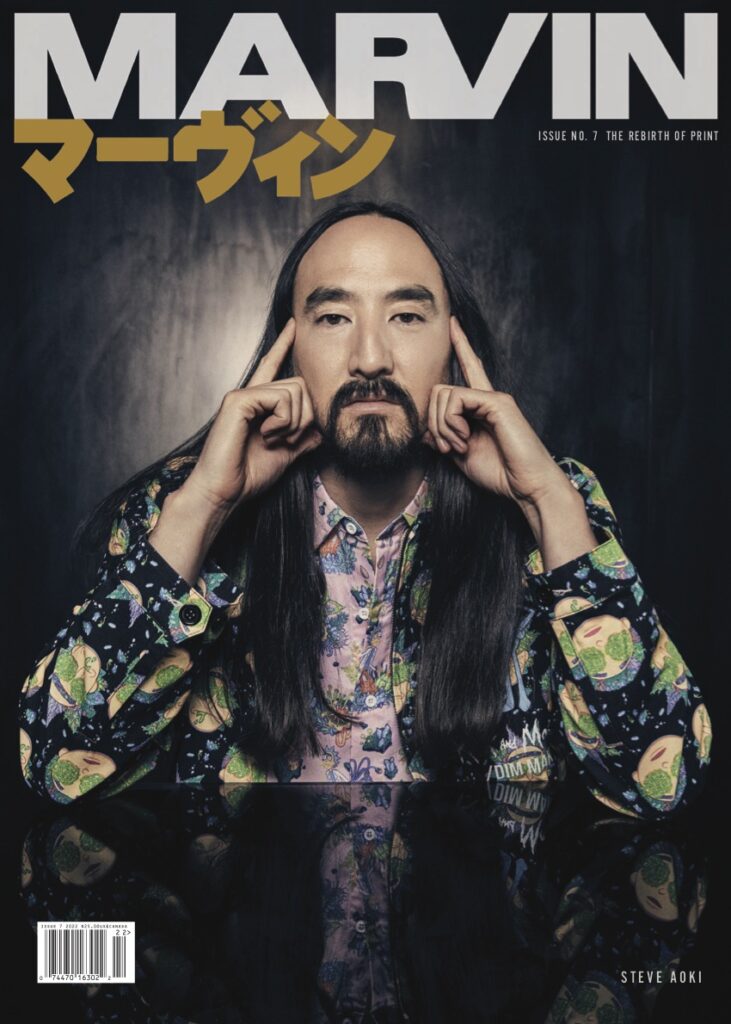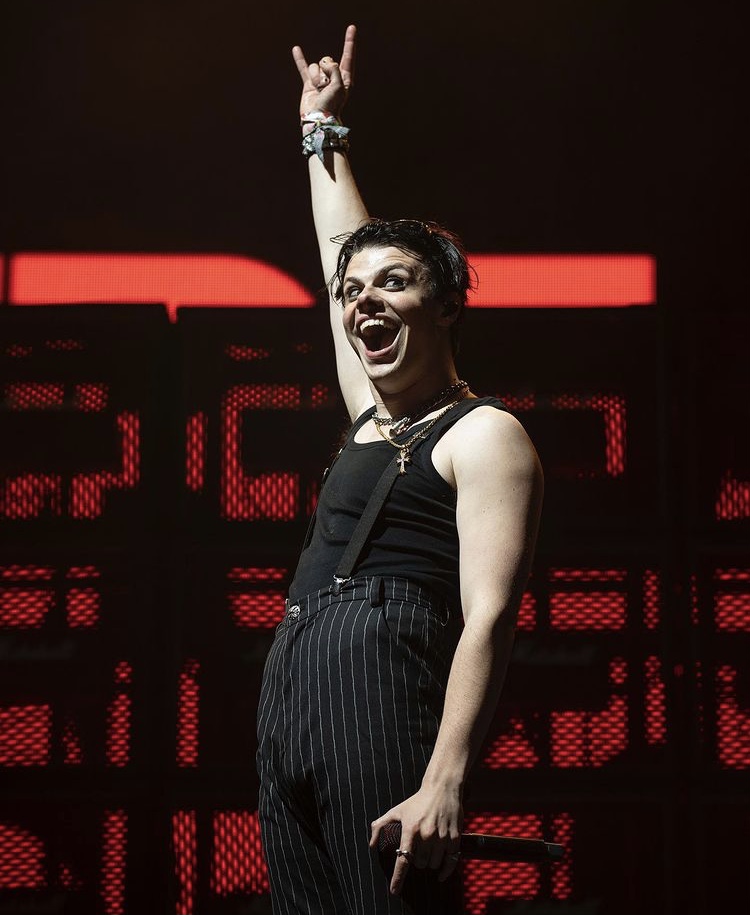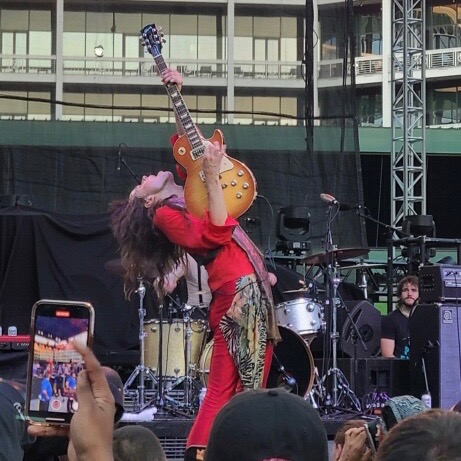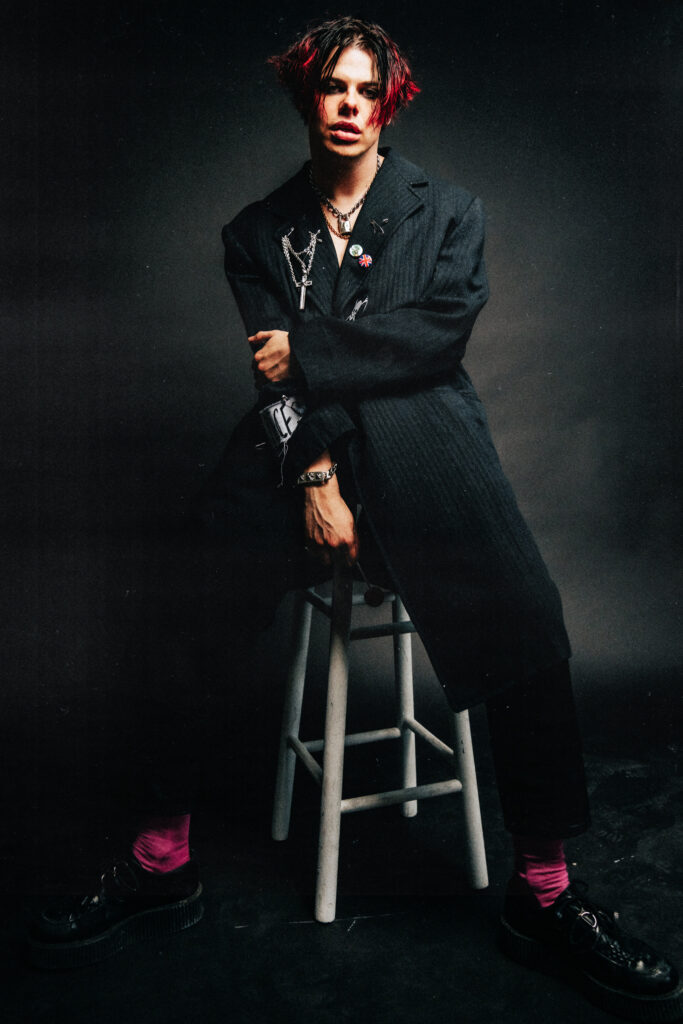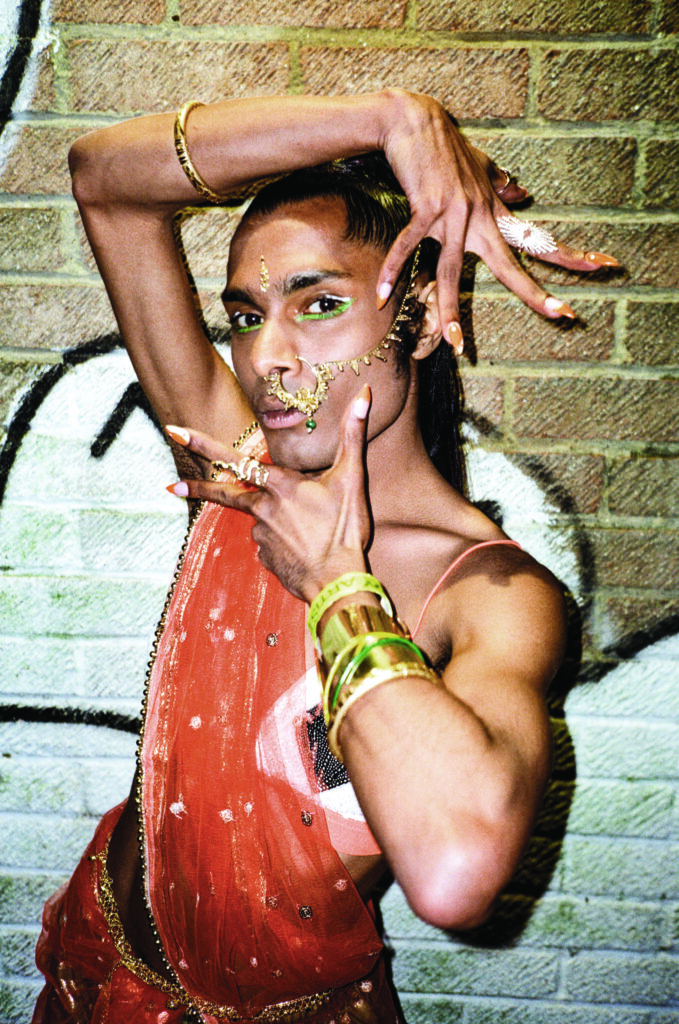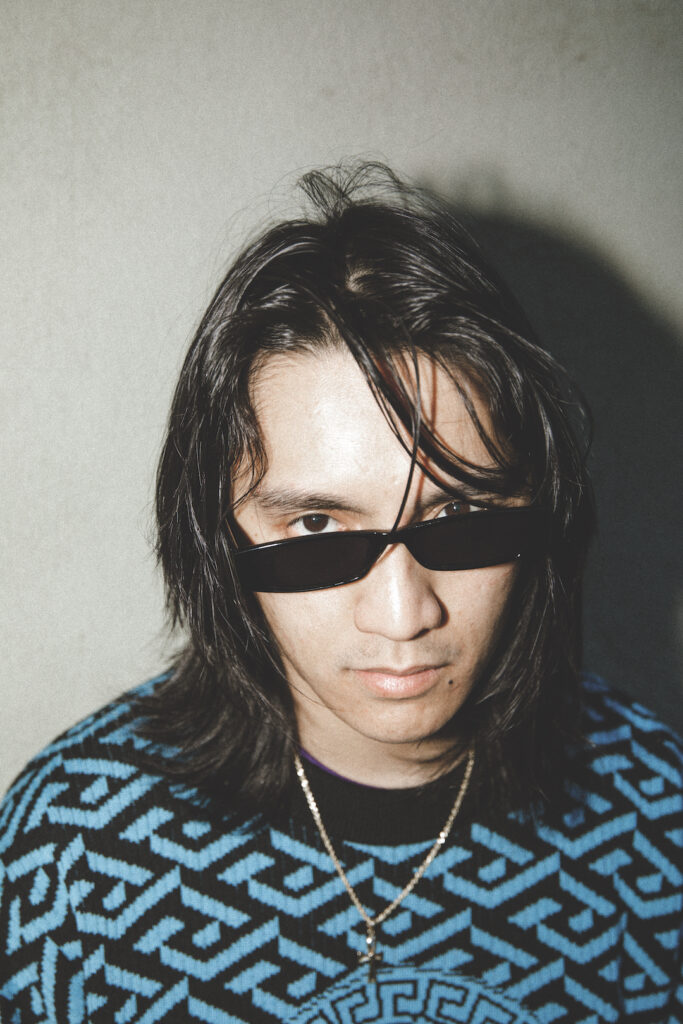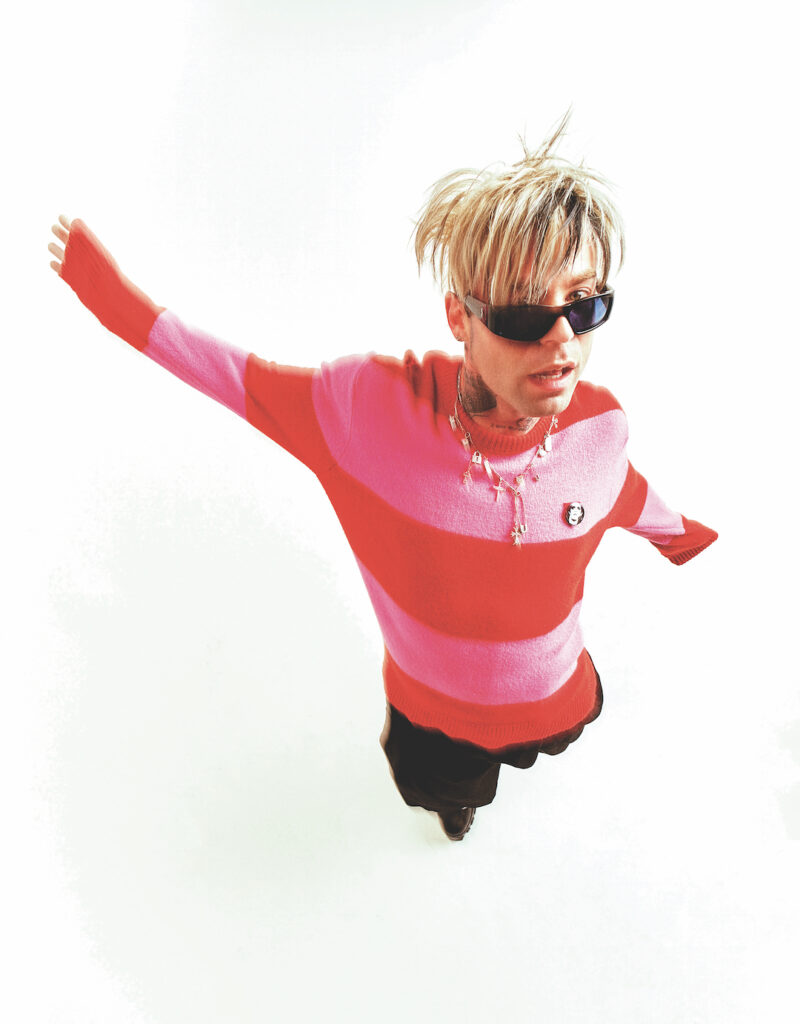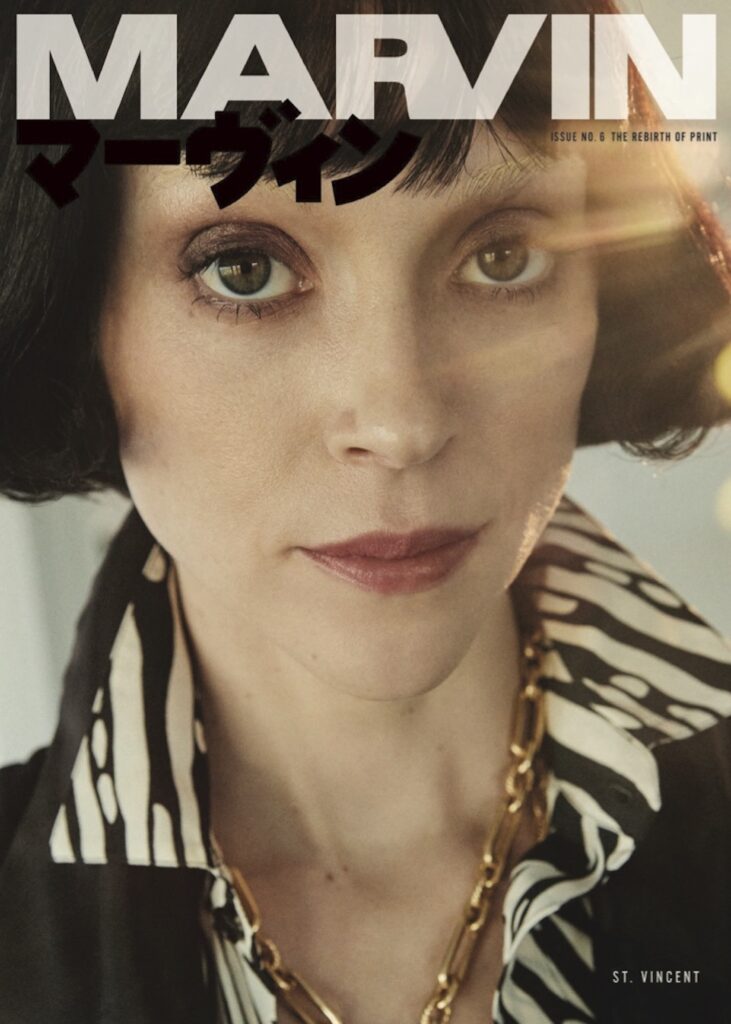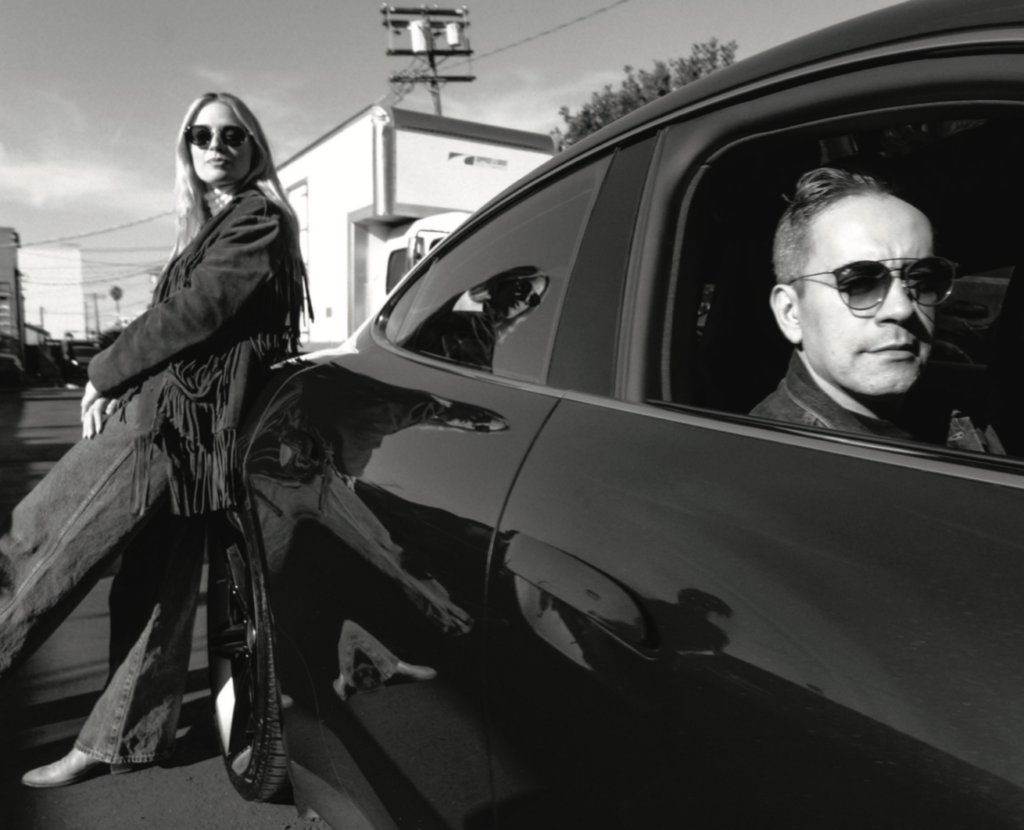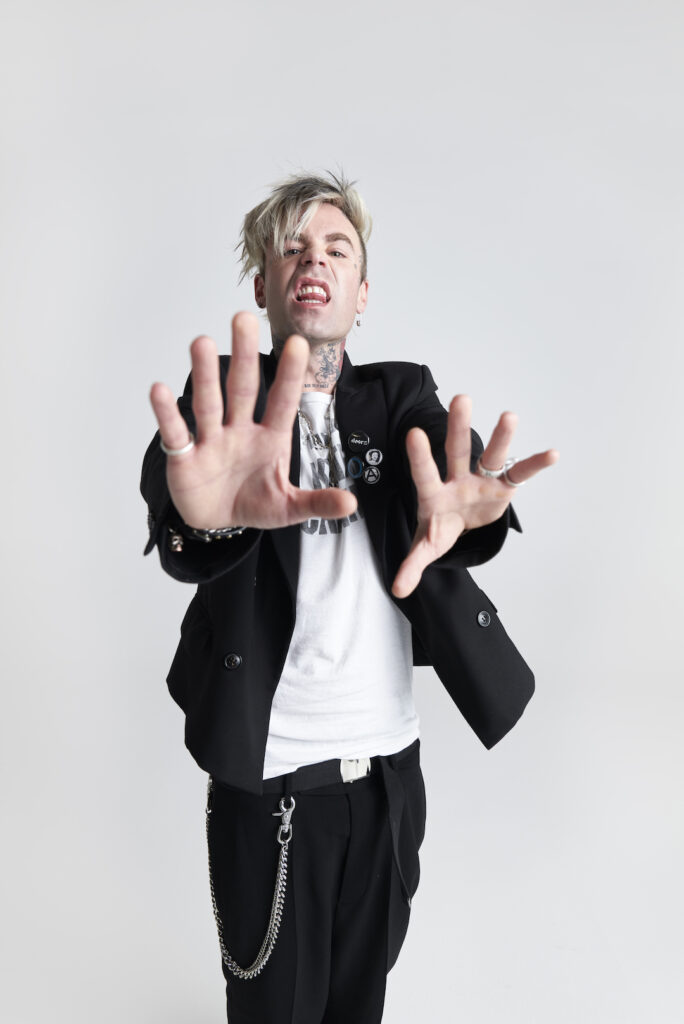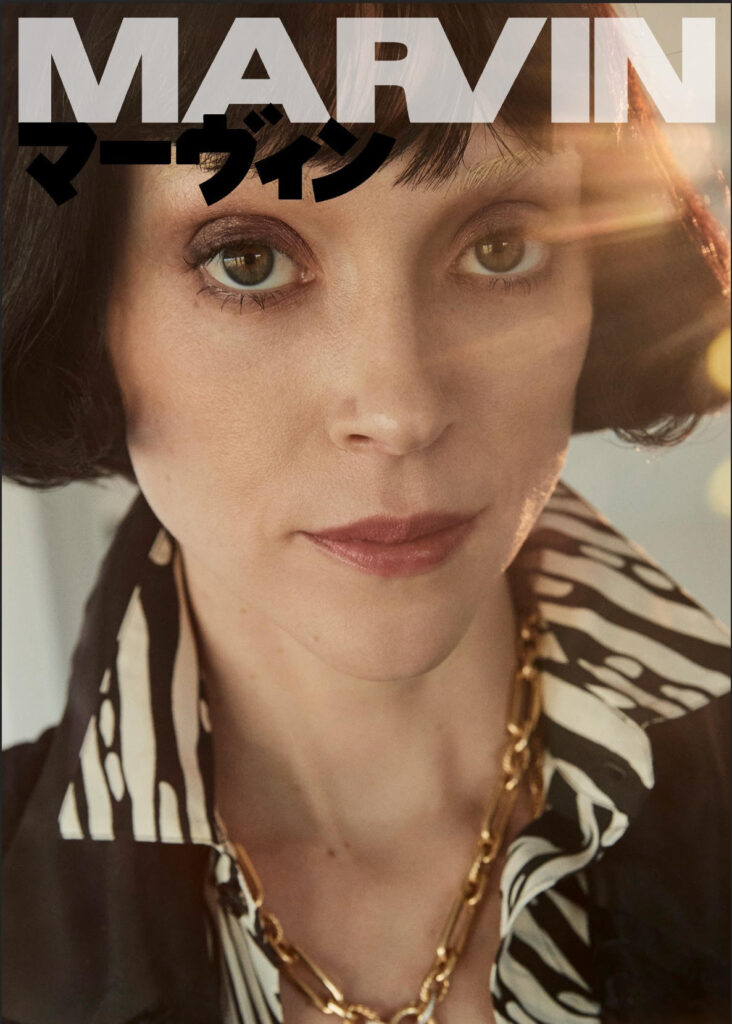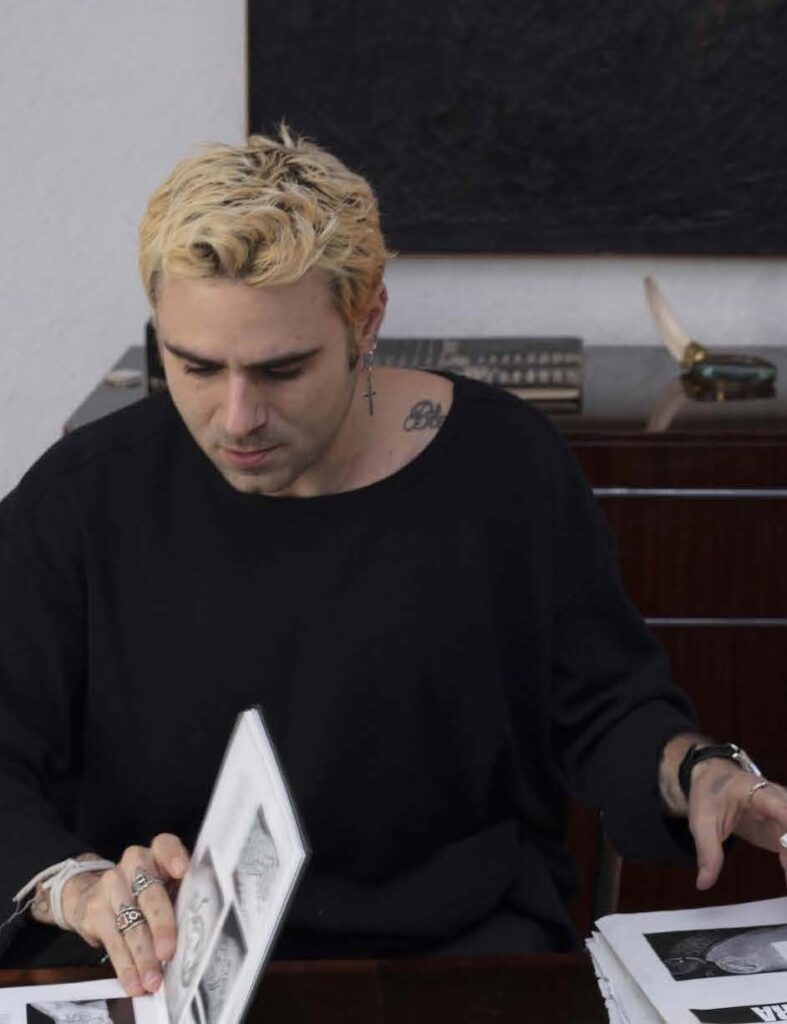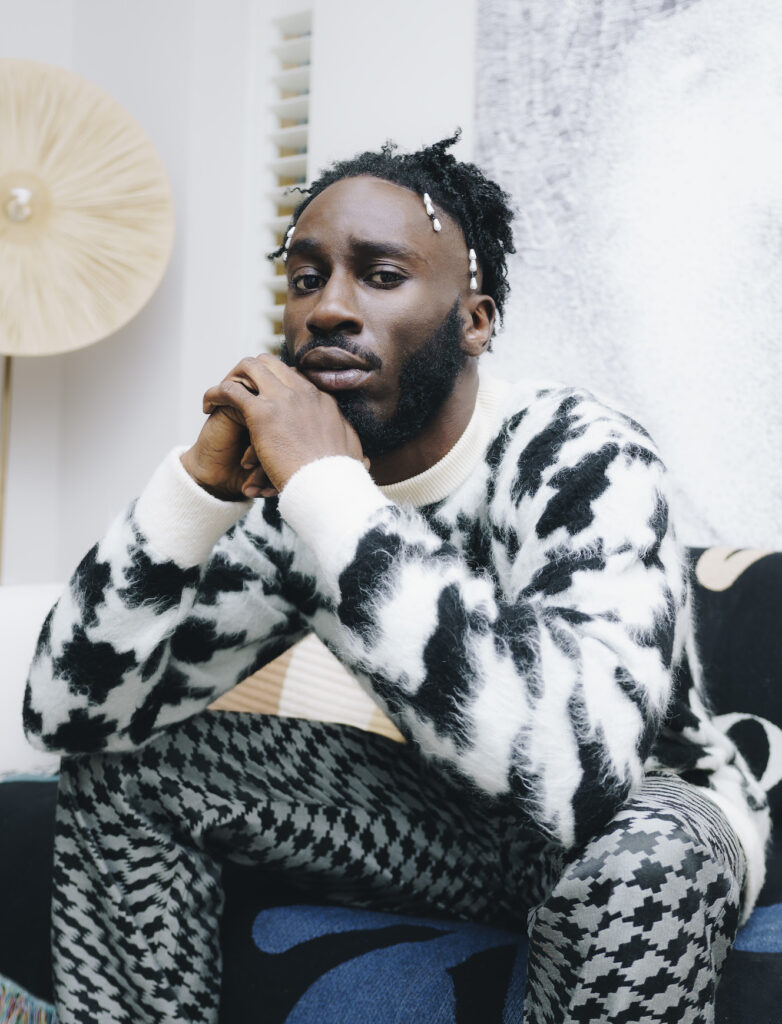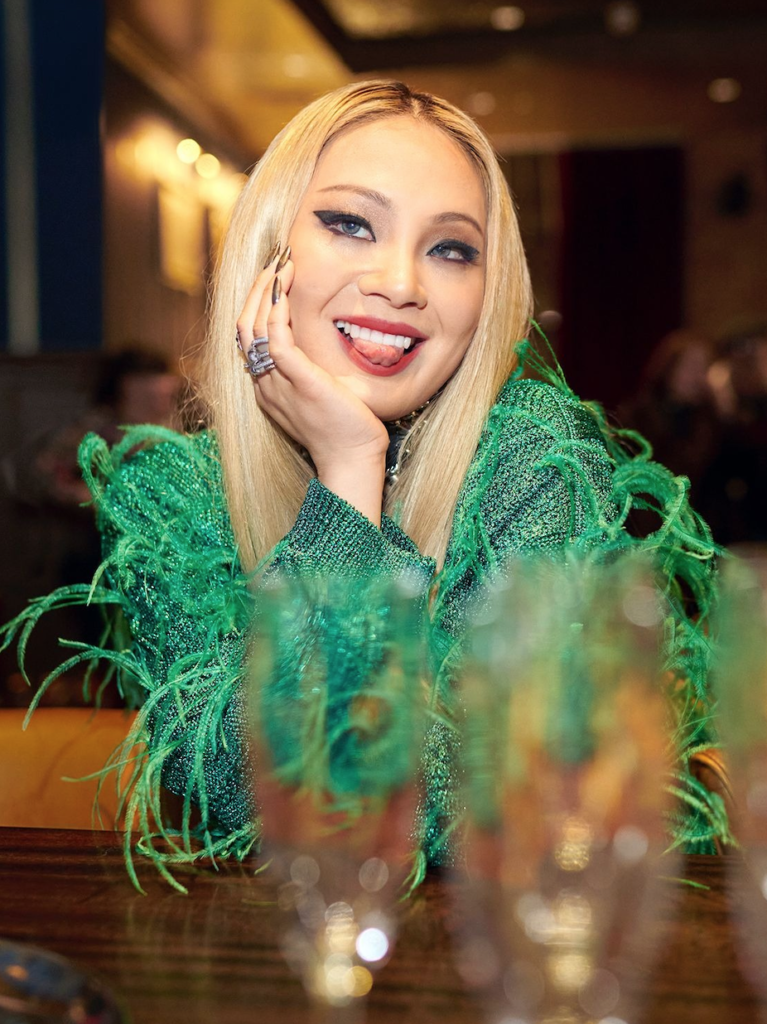MØ Reveals How She Found Her Own Voice, Balance and Dreams
Words by ALI SHUTLER
Photography by FRYD FRYDENDHAHL
Hair by KASPER ANDERSON
Makeup by NATALIA SYRIK
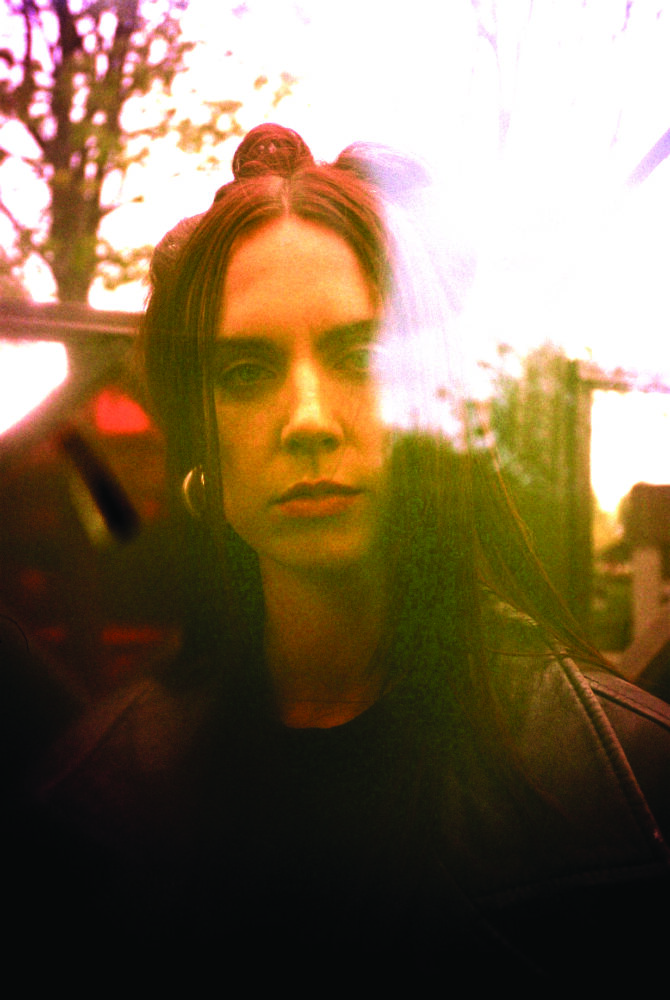 MØ’s first proper live gig in almost three years was playing the 20,000-capacity Fiserv Forum in Milwaukee in February, opening up for indie giants Imagine Dragons. Over the next two weeks, she performed to tens of thousands of people in arenas across America. “It’s such a joy being back on the road,” she says today, taking a break from her European run of headline shows. MØ, real name Karen Marie Aagaard Ørsted Andersen, says playing those big arenas was “scary at first.” She was worried she’d forgotten how to perform and “I was very anxious. But once we got onstage, even though I wasn’t performing to my own fans, the energy between performer and audience was just incredible. I live for it.”
MØ’s first proper live gig in almost three years was playing the 20,000-capacity Fiserv Forum in Milwaukee in February, opening up for indie giants Imagine Dragons. Over the next two weeks, she performed to tens of thousands of people in arenas across America. “It’s such a joy being back on the road,” she says today, taking a break from her European run of headline shows. MØ, real name Karen Marie Aagaard Ørsted Andersen, says playing those big arenas was “scary at first.” She was worried she’d forgotten how to perform and “I was very anxious. But once we got onstage, even though I wasn’t performing to my own fans, the energy between performer and audience was just incredible. I live for it.”
“I would be lying if I said I wasn’t dreaming of doing my own show in a big fucking arena one day,” she adds with a grin.
Ørsted has always wanted to be a popstar. When she was seven, she discovered the Spice Girls and “that was the first time I heard music that felt like it was written for me. There were these different types of women who were so in control and were on top of the world, that just inspired me so much.”
In her teenage years though, Ørsted would go on to discover rock and trip-hop—she still thinks Danish noise-rock band Iceage are the best thing to come out of Copenhagen—and fronted activist punk duo MOR with Josefine Struckmann, touring toilet venues and squats across Europe. “Punk music was my whole world. It’s where I found confidence and it’s where I found a language in music. Even though my music is now more mainstream pop, I don’t think I’ll ever lose that punk spirit…for better or for worse.”
MOR broke up in 2012 and by 2013, Ørsted released her first single as MØ. The upbeat, electropop banger, “Glass”. Back then her ambitions were to get her song played one time on Danish radio and maybe for a magazine or two to write about her.
“It was so hard for me to break into music because I was a woman and I didn’t have any connections. My family aren’t well-known musicians and I’m not actually from Copenhagen.” Instead, Ørsted was born over 100 miles away in the little village of Ubberrud. “But I just knew that music is what I should be doing. I knew I had something to say. I wanted to make an album that would resonate and inspire others, because when that happens with me, it brightens my whole world and evolves me. I wanted to do that for others.”
By the end of 2014, MØ had released the debut album she’d always wanted to create. No Mythologies To Follow led to her touring the world, performing on US television and winning four Danish Music Awards, including Best Danish Album. The wins kept on coming with collaborations with Diplo, Iggy Azalea, Justin Bieber, Charli XCX and Major Lazer establishing MØ as the sort of popstar she’d always wanted to be. But things didn’t slow down.
As the touring wound down for hugely successful second album, Forever Neverland in 2019, Ørsted realized she needed a break. She was burnt out from years on the road but also agreeing to every opportunity or offer that came her way. “I felt like I always had to be on but burning the candle at both ends is just not sustainable,” she explains. “You’re not doing yourself, or the people you’re making music for, any favors.”
![]()
“I just became very focused on external pressures rather than the internal drive to make music,” she continues, saying that she started reacting to what was trending instead of following her gut. “It was driven by this fear of losing what I had. I was living my dream, of course I didn’t want it to stop. But music shouldn’t come out of a place of fear, it should come out of a place of freedom of creation and inspiration.”
When she first started, she was warned that with pop music, you’re here one minute and gone the next. “That’s just a way of trying to control people. I don’t think it creates anything good.”
So she set about writing songs that would eventually become her third album Motordrome, which was released in early 2022. “I was just fumbling in the dark to begin with,” admits Ørsted. “I was mentally and physically trying to recover from burning myself out so the album became me reflecting on and evaluating the past few years.” There are vulnerable songs that see Ørsted grieving and trying to forgive herself for pushing herself so hard like the soaring “Hip Bones” or the haunting “Wheelspin” but there’s also a grit and a determination to carry on across Motordrome. The pulsating “New Moon” is a fiery ode to fresh starts while the empowering, feel-good anthem “Live To Survive” was written by Ørsted to give herself some much needed reconnection with self.
“I remember when I was writing Motordrome, it was the first time in a very long time that I actually felt like myself,” she says. “For years, I’d just been operating on adrenaline and I lost contact with my creative spirit. Even though I was feeling hurt, I could feel that spark once more. The only thing I knew for certain was that this album was going to be honest. It might’ve sucked but I knew I just had to go for it.”
Writing and recording the album during covid definitely influenced Ørsted’s decision to have no features on Motordrome (“If I had been in LA or London I’m sure it would have been different”) but also “because it’s such a personal album, I don’t think I wanted anyone else’s voice on it.” That changed earlier this year when a remix of “New Moon” was released featuring Rebecca Black. “I just think she’s super cool. Don’t get me wrong, it’s ok to think about business and what will get you in front of a bigger audience but it’s important that what you do comes from a place of fun and joy. You get the best shit that way.”
Likewise, her decision to mostly work with Danish producers—like Ronni Vindahl and Jakob Littauer—
was because of logistics (though former Vampire Weekend member and frequent HAIM collaborator Ariel Rechtshaid was also involved remotely) but also because Ørsted was wanting to return to her roots. The result is a forward-thinking pop album that leans into that classic Scandipop sound but isn’t afraid to experiment either. During the recording, she’d use phrases like “dirty guitars” and “dark synths” as a foundation for the sound and see where it took her.
“It’s very much an album about accepting your failures, accepting that you’re not perfect and realizing that life will always have highs and lows,” she explains. It’s ok to fail sometimes. It’s about accepting yourself and your boundaries.”
“I don’t think you gain anything by trying to run the fastest or by do whatever everybody else is doing. You have to dare to find your own voice even though it’s scary,“ she continues.
MØ is part of a wave of fearless, progressive popstars thriving in 2022. “There are so many amazing female artists out there right now” starts Ørsted before listing Charli XCX, Caroline Polachek, Grimes, Ashnikko and Arlo Parks as “cool ass women. It’s so inspiring when you can see an artist just go off and do their own thing. It’s amazing to see these artists blowing up with songs that maybe two years ago, would never have been released because the label or whatever didn’t believe in it.” Thanks to platforms like TikTok though, “those tracks are blowing up and connecting with people because they’re genuine.”
It’s why Ørsted is currently working on a “fun summer release”–not a new album but something that firmly exists in the world of Motordrome and features unreleased tracks from her 10-year career that she believed were perhaps too extreme to previously release. “It seems like you can do whatever the fuck you want a bit more nowadays,” she says with a grin. “I actually do like that approach because I’ve always been an artist that pulls from the worlds of pop and punk.” It’s a celebration of her decade in the music industry (“I’m so happy to still be here and doing this”) but also hints at what’s to come next. MØ is already thinking about her next album. “I want to try not overthink things and just go for it. It’s a nice space to be creating in when you’re just following your gut.”
Now that MØ is approaching everything differently, she makes sure she takes weekends off, turns her phone off at night and isn’t reaching for it first thing in the morning. She makes time to read, to do orienteering running and is crocheting hats to sell as merch at upcoming shows. Everything she does is deliberate and driven by the desire to have a good time. She’s still super ambitious though. “Of course I dream of more and bigger things.”
“I do feel like I still need to prove myself,” continues Ørsted. “But after everything I’ve been through these last few years, I know I’m only going to be successful if I have fun and try to be myself as much as possible. It means some people will probably think I’m not as cool as they first thought but there’s so much power in not caring what people think of you and instead, just listening to yourself.”
@momomoyouth
